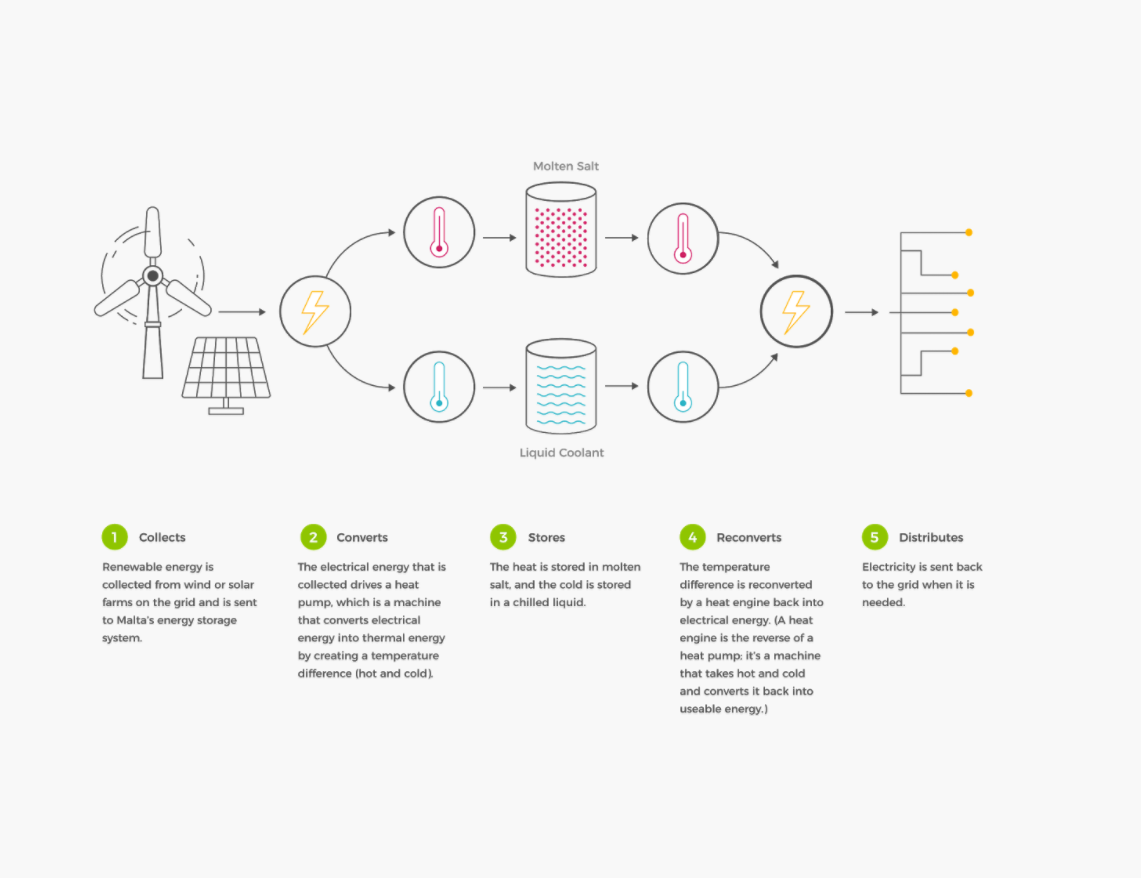Google Turns To Salt And Antifreeze To Store Renewable Energy
Green energy has a lot of benefits, but one lingering issue is the ability to properly use it. Since wind and sun power are unreliable, we're trying to find ways to store this extra energy. A team at Alphabet's "X" has found the best way yet.
Updated May 23 2019, 4:43 p.m. ET

Renewable energy has always had a storage problem. But Google parent Alphabet has a new plan to create and store energy - and it involves salt and antifreeze. "Malta," the code-name for the plan, would last longer than lithium-ion batteries, which have been hailed previously as the answer to renewable energy’s inconsistency problem. It would also be just as cost-effective as other existing methods to store clean energy.
As reported by Bloomberg earlier this week, the plan is being developed by Alphabet's experimental research lab X, that focuses on solving big problems around the world. Known as "moonshots," their projects always consider the following three subjects: find a big problem, look at a radical solution, and discover a breakthrough technology. In this scenario, the problem is renewable energy’s availability. Since wind and solar generation isn’t consistent, there are times where electric grids are underutilized or overpowered.
In order to solve this problem, a group of researchers have been looking for a way to store this excess energy. Unlike some current solutions, they wanted it to be cheap and always available. This meant that the product could be built anywhere and it was able to store electricity for short and long periods. It also had to be reusable, something that does eat away at lithium-ion batteries over time.
Led by Stanford physics professor Robert Laughlin, X created a way to store this generated power as cold and hot thermal energy by a pump that would separate temperatures. In heat form, it would be stored in giant tanks of molten salt. In cold form, it would be antifreeze. Basically, generated energy would be separated into different temperatures, then combined together with a heat engine when it needs to be sent back to the grid.
There’s a number of advantages this method has over battery backups. A number of utilities used in this process are very cheap to utilize. Ingredients like salt and antifreeze, and the tanks they’d be stored in, are inexpensive and can be reused often. X states on their website that “salt tanks can be charged...for possibly up to 40 years.” This method can also be installed in any weather situation, making it an extremely reliable process.
Why is storing energy so important? We’ve already thrown a lot of generated power out the window. According to Bloomberg, the state of California alone had to discard “more than 300,000 megawatts produced by solar panels and wind farms because there’s no good way to store it.” They’ve already had to pay surrounding states to take some of their energy so it wouldn’t ruin the electrical grid.
This problem isn’t limited to California as other countries that are thriving in renewable energy are dumping excessive amounts. Siemens, a German engineering firm, is using a similar salt method to store energy from the sun. There’s only going to be more investment into this issue as the problem needs to be addressed.
X will be entering a competitive market with Malta. Lithium-ion batteries are getting cheaper to the point where it could be more cost-efficient to go with them. There will also be continuing pushback from those that want to rely on traditional fossil fuels. It’ll be interesting to see where this emerging technology goes and its impact on how we store renewable power.
